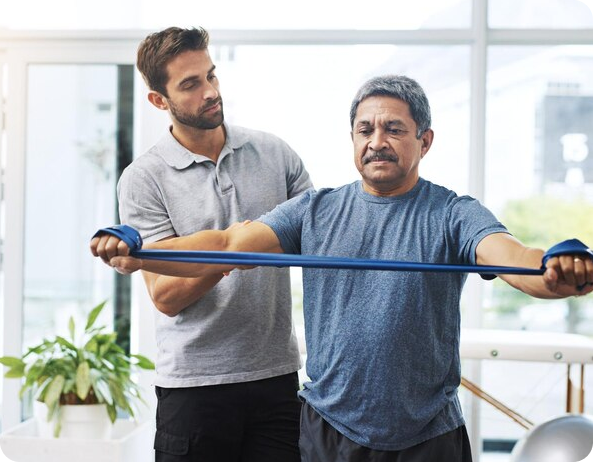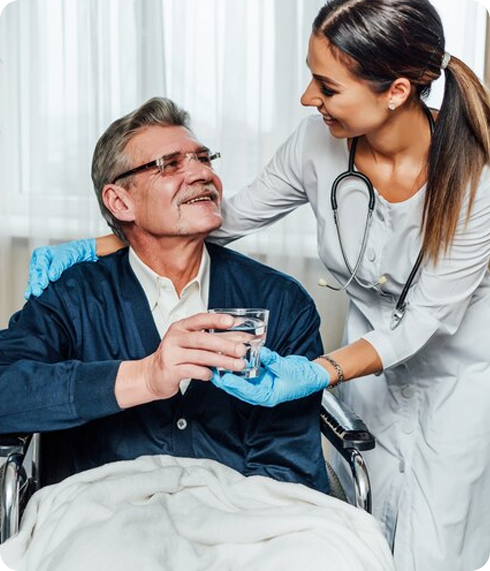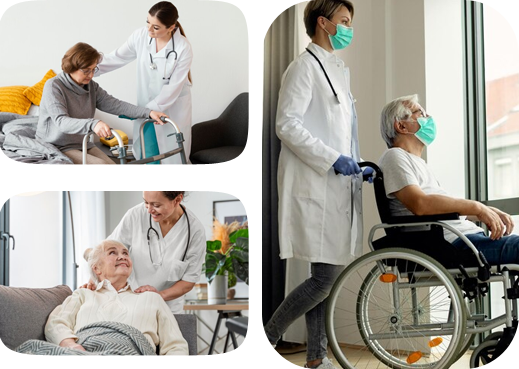Ayurveda for Stroke Rehabilitation
The brain relies on a continuous oxygen supply for various bodily functions. A stroke occurs when a clot or bleeding disrupts this, leading to brain cell death. Swift treatment is vital to prevent permanent damage. There are two main types: ischemic, from a clot, and hemorrhagic, from a ruptured vessel. Ayurveda addresses a similar condition, Pakshaghata, linked to Vata Dosha imbalance. Integrating Ayurveda with conventional treatments accelerates recovery, combining internal medication, Panchakarma therapies, and functional rehabilitation for faster restoration of musculoskeletal functions.
Outcomes of Stroke Rehabilitation treatment with Kerala Ayurveda
consciousness, and alertness.
of speech
metabolism, nutrient absorption
Improved functionality, and quality of life

Outcomes of Stroke Rehabilitation treatment with Kerala Ayurveda
muscle strength
Regulates bowel
and
bladder control
and
chewing ability

and
motor stimulation
Reduced daily
activity dependency
cognition, comprehension

Our Approach To Over come Stroke Rehabilitation
AyurVAID Hospitals’ Integrative Neuro Rehabilitation Program (INRP) offers a specialized Comprehensive Stroke Rehabilitation Program (SRP) for stroke patients. The program is designed based on classical Ayurveda treatments that address the root cause and risk factors of stroke and aims to restore the quality of life of stroke patients with classical Ayurveda Panchakarma therapies integrated with Functional or Occupational therapy inputs to maximize benefits to the patient. The primary goal of the Stroke Rehabilitation Program is to restore the lost sensory-motor functions of stroke-affected patients with Integrative care and sustained well-being. This neuro-rehab multispecialty program provides a comprehensive approach to stroke rehabilitation with the aim of managing the patient’s disease, facilitating recovery, and significantly improving their quality of life.
Stroke Rehabilitation treatment with Ayurveda
Make an appointment now and treat your Stroke Rehabilitation better with Kerala Ayurveda techniques at AyurVAID hospitals.
Book an appointment
What our patients says
Signs & Symptoms of Stroke Rehabilitation

Acute (During the episode)
- Paralysis of one part of the body
- Numbness or weakness in the arm, face, leg, especially one side of the body.
- Trouble in speaking
- Slurred speech
- Blurred Vision
- Trouble in walking
- Loss of balance or coordination
- Dizziness
- Severe, sudden headache with an unknown cause
Chronic (After the episode)
- Hemiplegia
- Altered perception of taste, smell, touch
- Reduced response and reflex
- Speech disorders
- Loss of balance
- Altered breathing and heart rhythm
- Changes in gait and stance
- Poor QoL - increased dependency on others

Causes & Risk Factors of Stroke Rehabilitation
- High blood pressure
- Tobacco chewing or smoking
- Diabetes
- High cholesterol levels
- Obesity
- Stress
- High intake of salt
- Cardiovascular disease

